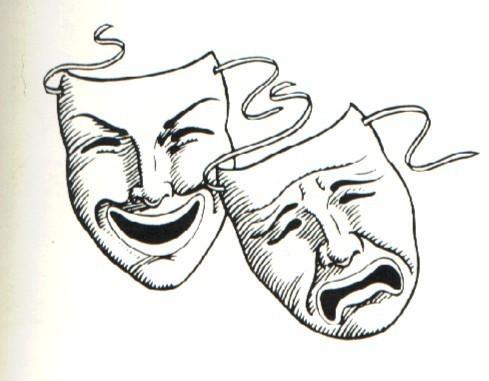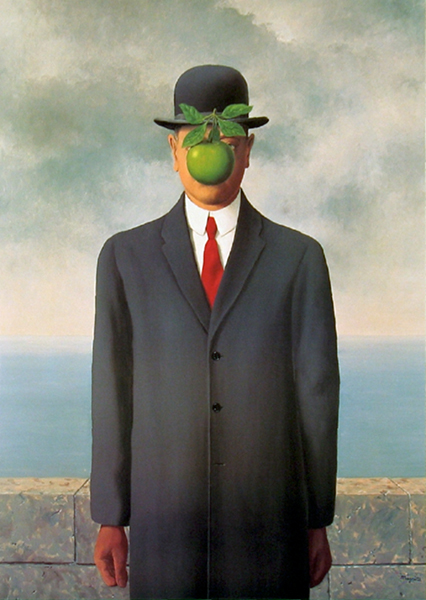 You might think that, with a job like mine, I’d be an extrovert. I’ve taught thousands of students. I’ve given dozens of invited talks. I’ve done a hundred or so radio interviews, and have even appeared on TV a few times.
You might think that, with a job like mine, I’d be an extrovert. I’ve taught thousands of students. I’ve given dozens of invited talks. I’ve done a hundred or so radio interviews, and have even appeared on TV a few times.
But I don’t come by extroversion naturally. It’s something I’ve learned to perform, a role I play, a character I impersonate. I’ve become so adept at this impersonation that, on those rare occasions when I’ve mentioned my native shyness, the general response has been disbelief.
It’s taken me a while to get here, though. It began, as many things do, in adolescence.
As a sixteen-year-old, I happened into a minor role – the Second Dead Man in Thornton Wilder’s Our Town. The director, Terrence Ortwein, was my teacher for a “Theater 101” class. The student originally playing that role got expelled, and Mr. Ortwein asked me if I would undertake it. I agreed, memorized the part, and began to attend rehearsals, where I became an extra in other scenes. Though it was a bit nerve-wracking to be on stage, I also found that… I could do it. I went on to have minor roles in Spoon River Anthology, Grease, Oliver, and Rogers and Hammerstein’s Cinderella. I lacked the confidence (and, no doubt, the ability) to land a major part, but I was glad to be a member of each cast.
I have no idea why Mr. Ortwein thought I could do it. Perhaps he thought it would be good for me?
It was good for me. Acting allowed me to a glimpse a different self. It taught me that I could discard the script I had been using and try a new one. When I set off for college, I decided that my tendency towards introversion was unhealthy. Thus, I would deliberately cast myself in roles that required me to interact with others. As a freshman, I ran for dorm council president … and won. I also applied to become a Resident Advisor, and became one of two sophomore RAs the following year – a job I held through my senior year. I joined the Arts Committee (a student group), and became president of it for a year, too.
In each case, I figured that the job would force me to rise to the occasion. It did. Inhabiting these new roles wasn’t easy: I had no leadership experience whatsoever. But I managed. Though this seems silly to me now, for each of those dorm council meetings, I would print up and then photocopy an agenda. Having an agenda gave me a script. It helped me to perform.
Learning to teach was much harder. I say “was,” but I should probably say “has been” because it’s something I’m still learning to do. (And I hope I’m getting better at it!) Teaching was and is harder because it can’t all be acting. It also has to be you. You have to develop a teaching persona that’s a version of yourself – the classroom version.
 I’m sharing this personal narrative because I sense that many “book people” – in which I include academics, librarians, writers, artists – are introverted, or at least tend in that direction. Yet, as Morrissey sings in the Smiths’ “Ask,” “Shyness is nice, but shyness can stop you / from doing all the things in life you’d like to.” So, many of us bookish folks have learned to perform a more extroverted version of ourselves. Indeed, we might even create such a successful “confident” persona that most people would be surprised to learn that they’re talking to a naturally shy person.
I’m sharing this personal narrative because I sense that many “book people” – in which I include academics, librarians, writers, artists – are introverted, or at least tend in that direction. Yet, as Morrissey sings in the Smiths’ “Ask,” “Shyness is nice, but shyness can stop you / from doing all the things in life you’d like to.” So, many of us bookish folks have learned to perform a more extroverted version of ourselves. Indeed, we might even create such a successful “confident” persona that most people would be surprised to learn that they’re talking to a naturally shy person.
One of the most liberating things I learned in college was that, although psychologists study personality, it’s nearly impossible to prove that such a thing as “personality” exists at all. This insight affirmed my sense of the self as malleable: you may feel shy or insecure, but you don’t always have to be that way. You can change.
Years of acting have changed my personality. I’ve become more extroverted. I enjoy socializing. I like giving talks. But I’m also glad when the talk finishes, the party’s over, and I can go home again.

Natalia
Libby
Kay Weisman
Matt
debbie
Philip Nel